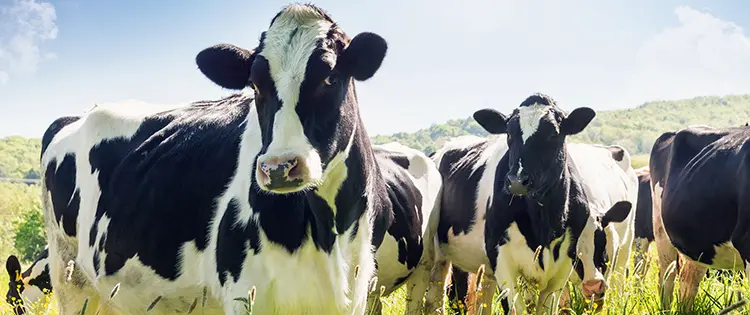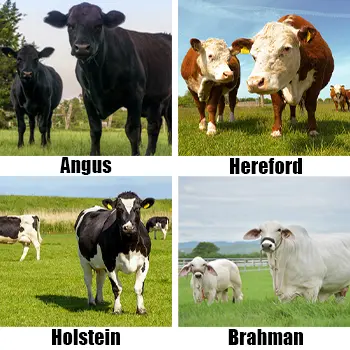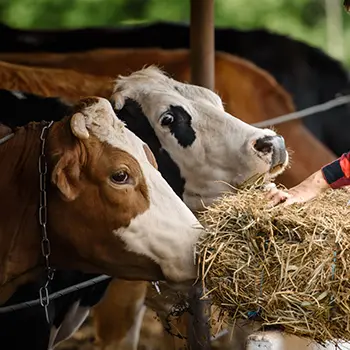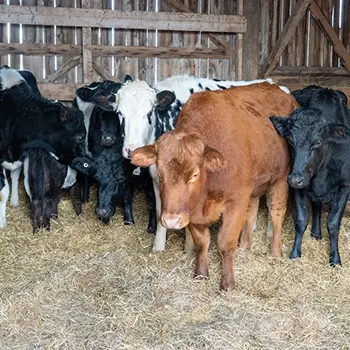Raising cows on your homestead is an important part of being self-sufficient because of the numerous benefits they provide. From food to fertilizer, and promoting sustainable agriculture, cows make a valuable addition to any homestead. If you’re not sure about raising cows, this article will provide you with some insight into how cows can contribute to your self-sufficient lifestyle.
The Benefits Of Raising Cows
Raising cows is extremely beneficial for homesteaders. Here are some of the main advantages: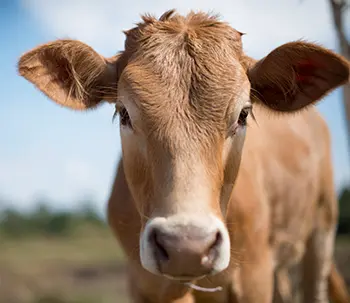
Meat Production: Cows produce high-quality beef which is a rich source of protein, zinc, iron, and vitamin B12. Homesteaders can control the quality of the meat they produce by using ethical and sustainable farming practices such as grass-fed beef production, and rotational grazing. This also supports sustainable land management practices. Selling cow meat can also become an additional source of income.
Dairy and Milk Production: One of the main benefits of raising cows is that they provide high-quality dairy products and milk. Cow milk is rich in nutrients such as vitamin D, protein, and calcium, making it an important part of a healthy diet. Cows milk can be used to make other dairy products such as butter, yogurt, and cheese. If you’re planning on making an additional source of income, you can sell milk and dairy products.
Soil Health: Cows graze on vegetation and grass which helps improve soil quality and stimulate plant growth. Cow manure is also an excellent fertilizer, providing the right nutrients for the soil. Additionally, homesteaders can use cows to help control invasive species and weeds which is an excellent way of promoting healthy ecosystems and biodiversity on the land. Homesteaders can also prevent soil degradation and improve soil structure by rotating cows through different areas.
Greenhouse and Gas Reduction: Sustainable farming practices such as rotational grazing and grass-fed beef production can contribute to greenhouse gas reduction because it promotes carbon sequestration and helps to reduce methane emissions from cows. Homesteaders can also apply manure management practices such as anaerobic digestion and composting to reduce methane emissions from manure storage.
Different Cow Breeds
There are several different cow breeds each with unique traits and characteristics. Here are some of the most common:
Angus: Angus cows are known for their easygoing nature and their calm temperament. They also have good maternal instincts and produce marble-patterned meat.
Hereford: Hereford cows are known for their ability to adapt to different climates and their hardiness.
Holstein: This breed is preferred by those interested in dairy products because of its ability to produce large amounts of milk.
Brahman: If you live in a hot country, Brahman cows are ideal because they’re known for their heat tolerance. They are also resistant to diseases such as foot and mouth disease, tick-borne diseases, and bovine respiratory disease.
How To Feed Cows
Feeding cows the right way will ensure they receive the right nutrients to produce quality milk and meat. Here are some tips on how to feed cows:
High-Quality Forage: Cows are ruminants with complex digestive systems that are made to process roughage. Feed cows with high-quality forage such as pasture or hay.
Monitor Feed Intake: Cows should be eating around 2-3% of their body weight in feed per day.
Supplement With Protein and Grain: Although forage is the main source of nutrition for cows, they may also need supplemental protein and grain to ensure they get enough nutrients.
Access to Clean Water: Cows need access to fresh, clean water at all times. Provide clean drinking water in automatic waterers and troughs. You will also need to make sure that water utensils are kept clean and free of contaminants.
Foods To Feed Your Cows
Cows are herbivores and they eat a wide range of plant-based foods. Here are some of the most common:
- Forage: Forage is the main source of nutrition for cows and can include silage, hay, and pasture. Forage is high in fiber and provides the nutrients required for cows to maintain their health.
- Protein Supplements: Protein supplements such as distillers grain, cottonseed meal, and soybean meal can help support milk production and muscle growth in cows.
- Grains: Provide your cows with an additional energy source by feeding them grains such as oats, barley, and corn. However, don’t overfeed cows with grains because these foods can cause digestive issues.
- Mineral Supplements: To ensure your cows are getting the right nutrients, add mineral supplements such as magnesium, phosphorous, and calcium to their food.
Foods Not To Feed Your Cows
Although cows can eat a wide variety of plant-based foods, there are some foods they should avoid such as:
- Certain Plants: Plants such as wild cherry, poison hemlock, and nightshade are toxic to cows.
- Certain Food Products: Certain food products such as onions, avocados, and chocolate can be harmful to cows.
- Spoiled or Moldy Feed: Spoiled or moldy feed can contain toxins that harm cows. Before feeding your cows, inspect them to ensure it’s fresh.
- Animal and Meat By-Products: As mentioned, cows are herbivores and can’t eat meat or animal products, doing so can cause digestive problems and increase the risk of disease transmission.
How To Protect Your Cows From Predators
Cows are preyed on by animals such as bears, mountain lions, wild dogs, and coyotes; therefore, it’s important to ensure they are properly protected. Here are some tips on how to protect your cows from predators:
- Fencing: A strong, solid fence will keep predators from entering the pasture. Choose a fence that’s at least 4-5 feet high.
- Lighting: Motion-activated lighting will scare off night predators.
- Noise Makers: Noisemakers such as air horns or alarms can scare away predators.
- Guardian Animals: Livestock guardian animals such as donkeys, llamas, and some dogs are trained to identify and confront predators.
Final Thought
Raising cows can be beneficial and rewarding for homesteaders. Not only do cows provide a source of income and food, but they also contribute to a self-sufficient and sustainable lifestyle. Also, raising cows can be a great way to connect with nature and learn new skills such as pasture management and animal husbandry.
You may also like:
An Insanely Effective Way to Build a 5 Year Food Stockpile (Video)
How to Use the Whole Animal (Whether You Raise Your Own or Buy It)
20 Foods That Can Last 20 Years

